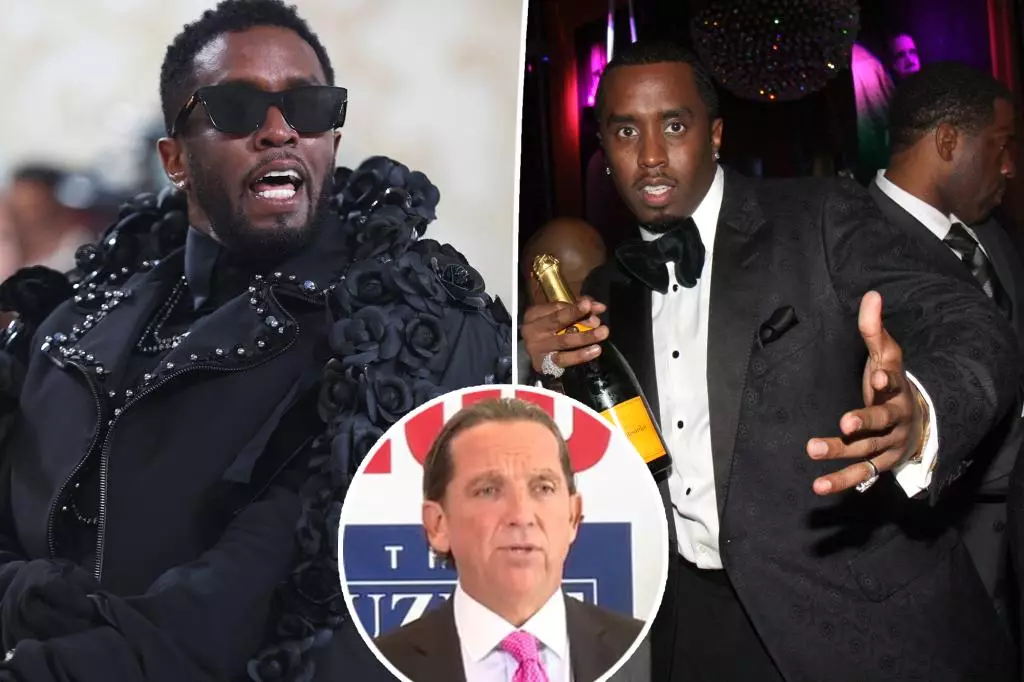Sean “Diddy” Combs, a prominent figure in the music industry, has recently found himself at the center of a storm involving accusations from over 100 individuals, addressing grave allegations of sexual assault. This extensive collection of claims ranges in specificity and severity, casting a long shadow over the mogul’s public persona. One particularly harrowing story shared during a press conference by attorney Tony Buzbee involved a woman who asserted that her drink was “laced” during a dinner with Combs, a scenario that raises alarming questions regarding consent and personal agency.
The details presented during the press conference were chilling. Buzbee elaborated on the woman’s experience, illuminating a disturbing narrative in which she, despite being pregnant and abstaining from alcohol, allegedly succumbed to the effects of a tainted drink. Upon waking, the woman recounted traumatic injuries that painted a stark picture of assault. It’s important to approach such sensitive allegations with an understanding of the psychological and physical implications they carry for the survivors. The emotional toll of recounting these experiences can be immense and should not be overlooked amidst the charged atmosphere surrounding these allegations.
The Weight of Testimony
Buzbee emphasized that while this woman’s story is unsettling, it is not unique—many of the other 100 accusers echoed similar themes of manipulation and violation. The implications of such systematic behavior are troubling, particularly regarding the alleged involvement of substances like horse tranquilizers. As society grapples with issues around consent and agency, these claims disclose a troubling potential pattern of exploitation that warrants thorough investigation.
In stark contrast to these allegations are the assertions made by Combs’ legal team, which vehemently denies all claims of sexual abuse. They stress that allegations made against him are not only false but also defamatory. This differentiation—the tension between accusation and defense—underscores the complexities that accompany high-profile cases involving powerful individuals. Combs’ team looks forward to a courtroom setting where they believe truth and evidence will ultimately prevail. This dichotomy raises a broader issue regarding the public’s perception of justice and truth within the realm of celebrity culture.
The backdrop of these allegations is further complicated by recent legal troubles surrounding Combs, including past accusations made by his ex-girlfriend Cassie, which highlighted a decade filled with claims of physical and sexual abuse. The aftermath of that lawsuit appears to have catalyzed a series of federal investigations that led to significant raids on his residences. The legal charges he now faces—ranging from racketeering conspiracy to sex trafficking—paint a grim picture that few could have anticipated for the one-time musical titan.
As he remains detained without bail in Brooklyn’s Metropolitan Detention Center, Combs’ future hangs in the balance. Public sentiment can rapidly shift in cases with such serious allegations; a result of media narratives feeding into the collective consciousness. The legal process, however, requires patience, and the questions of culpability and innocence are left to be determined by a court of law.
Public discussions surrounding Combs’ legal battles and the myriad of accusations serve as a stark reminder of the wider societal issues concerning sexual assault, power dynamics, and the culture of silence. The numerous claims of seemingly orchestrated predatory behavior raise significant alarms regarding the environments that allow such actions to flourish unchecked. Buzbee’s comments about the enablers behind these actions suggest a cultural malaise that extends beyond individual culpability; it hints at a systemic problem that requires honest dialogue and, most importantly, accountability.
This tumultuous saga involving Sean Combs is representative of an intersection where fame, power, and moral responsibility collide. As the dust settles, it remains to be seen how this case will shape public opinion, influence discourse around similar allegations, and ultimately, what it reveals about the mechanisms of societal judgment in the wake of such profound allegations. The convergence of personal, legal, and cultural ramifications creates a narrative that is not only tragic but also crucial for future conversations on sexual violence and accountability in positions of power.

